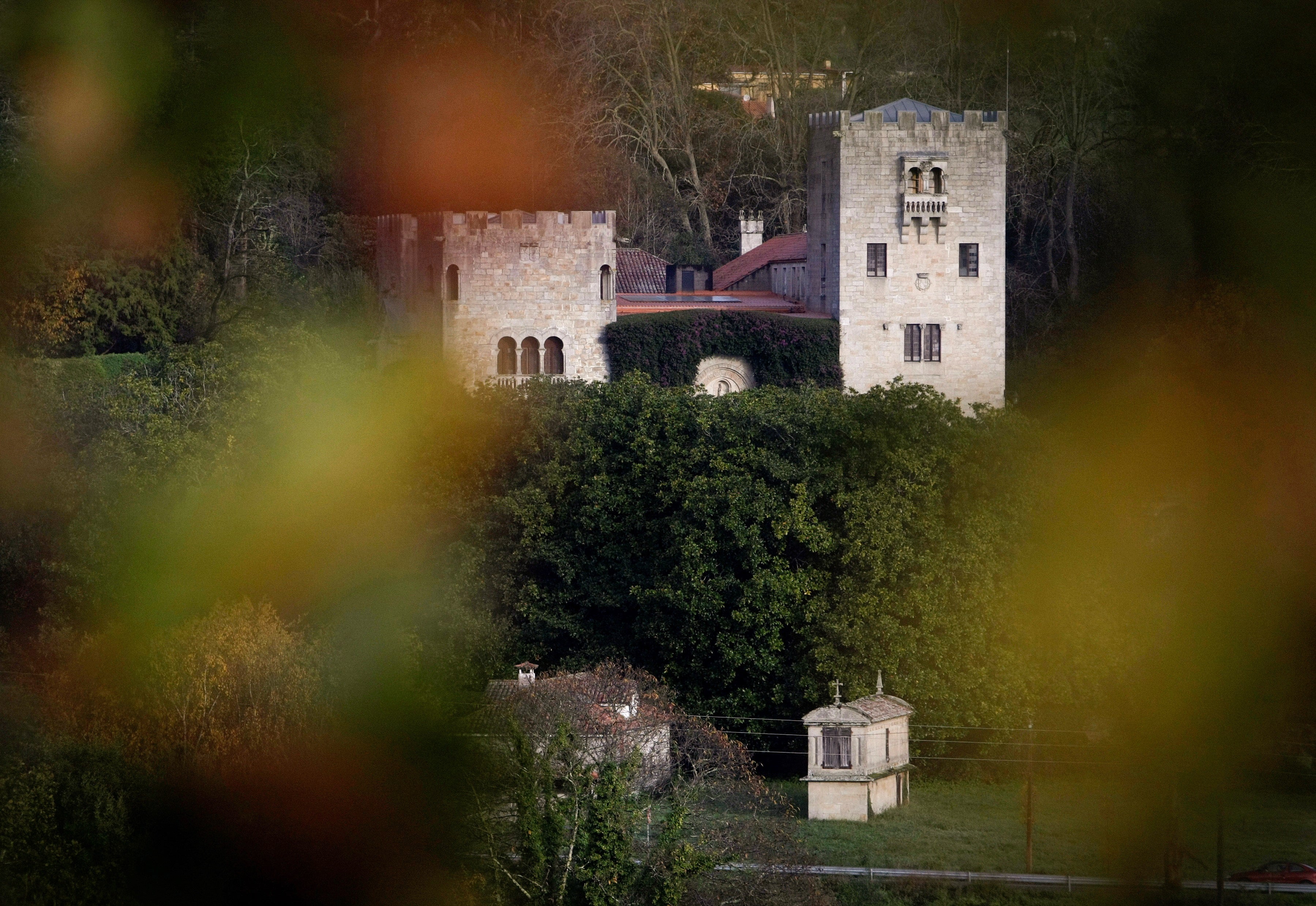Get out and stay out! Spain orders descendants of dictator Franco to leave treasure-laden summer palace
Franco’s heirs have been told they must leave the Pazo de Meiras by Thursday and take their possessions, but nothing which belongs to the state, reports Graham Keeley in Spain


Paintings by Spanish masters such as Zuloaga, two 12th-century sculptures of the prophets Isaac and Abraham, royal tapestries and valuable glassware are among a treasure trove found in the former summer palace of General Francisco Franco.
Some 637 items listed in a 1,000-page inventory of the contents of the Pazo de Meiras palace revealed the opulent life enjoyed by the Spanish dictator and his family.
However, the family of the man who ruled Spain for nearly four decades will have to forgo all this from Thursday, after a judge ruled they must vacate the 16-acre property.
The ruling was the latest chapter in a long legal battle between Spain’s left-wing government who have fought to reclaim the historic mansion for national heritage and the dictator’s descendants who claim the mansion is private property.
Since coming to power in 2018, the socialist government has made it a priority to rid Spain of the vestiges of the Franco dictatorship.
Pazo de Meiras, the 19th-century property which stands in the town of Sada on the coast of Galicia in northwestern Spain, has been a symbol of this crusade.
In order to prevent the Franco family from leaving the property with any artworks which have been declared part of the national heritage, Judge Marta Canales asked for an inventory to be drawn up.
The most important works are the sculptures of Isaac and Abraham which formed part of the Portico of Gloria in the Cathedral of Santiago de Compostela, until they became the property of the Francos in the 1950s.
Other items found in the chapel included a bull from Pope Clement VIII dating from the 16th century and royal tapestries.
The library includes 13,000 books, some owned by Franco and his family, others which were the property of Emilia Pardo Bazan, a writer, who was the original owner of the mansion.
Some personal items have come to light including the playhouse of Franco’s daughter Carmen Polo, with its own granary and well, all built to scale.
For Carlos Babio, a campaigner who has fought for years to reclaim the Pazo de Meiras for the Spanish people, the ousting of the Franco family will be a sweet victory.
“Tomorrow will be a historic day after years of fighting for this moment,” he told The Independent.
“But this has been a very strange battle as we have had to fight for 40 years in a democracy to get rid of the family of a dead dictator from a property which should be ours.”
Benito Portela, Sada’s mayor, believes the building should be turned into a centre for the recovery of historical memory about the Franco era.
Last month, a court in the city of A Coruna in Galicia ordered the Franco family to turn it over to state ownership, upholding a Spanish government complaint filed last year claiming the 1941 sale to the dictator was “fraudulent”.
Franco’s family has always claimed the property, which was built between 1893 and 1907, was private property.
The estate was acquired by a Francoist organisation at the end of the 1936-1939 civil war and they later signed it over to the victorious dictator.
Campaigners claimed local people were forced to contribute financially to buy the property.
The court challenged the 1938 donation and subsequent sale in 1941, ruling it “null” and “void”, since it was transferred to “the head of the state and not to Francisco Franco personally”.
It also found that the sale was little more than a “pretence” because Franco did not pay anything for the property.
The court ordered the Franco family to “immediately hand over the property without being compensated for the expenses they claim to have incurred for its maintenance”.
“On accepting that the country estate belongs to the state, the judge also declared null and void the transfer of the property to Franco’s heirs”, after the dictator’s death in 1975, a court statement said.
In 2018, Galicia’s regional government declared the country property to be of “historic and cultural value”, ordering the Franco family to open it up to the public.
Whatever we do they will get the courts to rule against us. We never get a fair ruling.”
Francis Franco, one of the dictator's six grandchildren, insisted the family would appeal against the latest court ruling.
“This is the latest round of a circus. How can we get justice from this socialist communist government?” he told The Independent.
“Whatever we do they will get the courts to rule against us. We never get a fair ruling.”
Police were stationed outside the mansion last month amid reports that the Franco family were planning to strip the property of its contents and had hired 50 lorries to clear the mansion.
The family had previously tried to sell the mansion, putting it on the market with a price tag of €8m (£7.19m).



Join our commenting forum
Join thought-provoking conversations, follow other Independent readers and see their replies
Comments